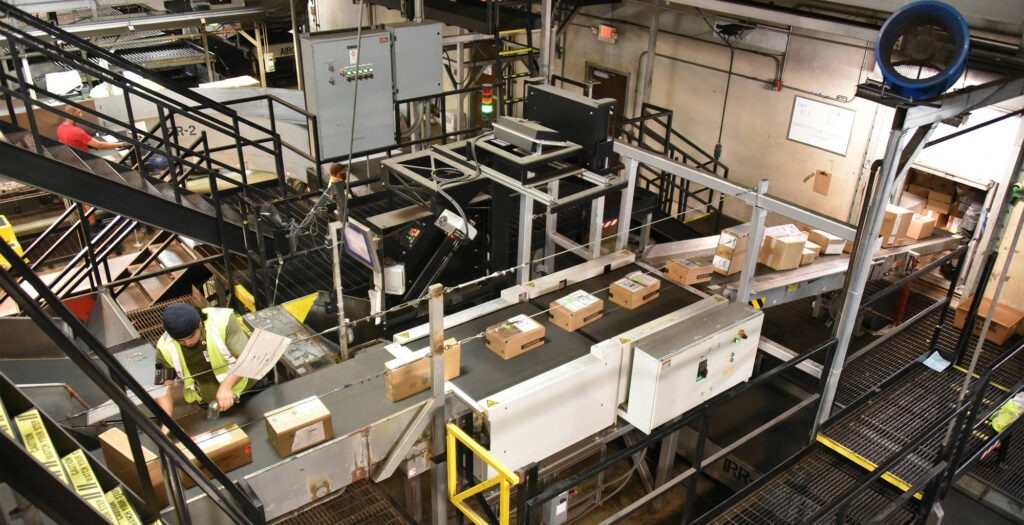In the heart of Silicon Valley, a technological revolution is transforming the way e-commerce businesses handle their shipping operations. Automation is the name of the game, streamlining logistics processes and enhancing efficiency like never before. Follow along to delve into the innovative advancements and challenges reshaping the landscape of shipping automation.

Transforming Logistics with Shipping Automation
The impact of shipping automation on logistics is truly revolutionary. By leveraging cutting-edge technologies, businesses can automate order processing, label creation, and shipment tracking. This not only saves valuable time but also reduces the risk of errors, ensuring a seamless and accurate shipping process.
Furthermore, automation provides real-time visibility into the movement of goods, allowing businesses to make data-driven decisions and optimize their supply chain management. From warehouses to last-mile delivery, every aspect of the shipping process can be enhanced through automation, leading to increased efficiency and customer satisfaction.
With the ability to handle high order volumes and fluctuating demand effortlessly, shipping automation empowers e-commerce businesses to scale operations efficiently. This scalability is crucial in meeting customer expectations for fast and reliable shipping, especially in today’s hyper-competitive online marketplace.
Innovative Technologies Reshaping E-commerce Shipping
The integration of innovative technologies like IoT sensors and predictive analytics is revolutionizing e-commerce shipping. These tools enable the tracking of shipments in real-time, allowing for proactive issue resolution and improved communication with customers regarding delivery timelines.
Additionally, machine learning algorithms can analyze vast amounts of data to optimize shipping routes, reduce delivery times, and minimize shipping costs. By harnessing these technologies, businesses can offer faster shipping options and enhance overall customer satisfaction.
Moreover, automated packaging solutions incorporating robotics and AI are streamlining the fulfillment process, ensuring accurate packing and minimal waste. This not only speeds up order processing but also contributes to a more sustainable approach to e-commerce logistics.
Efficiency and Speed: The Core Benefits of Shipping Automation
Efficiency and speed are at the heart of automated shipping processes. By eliminating manual tasks and optimizing workflows, businesses can fulfill orders faster and more accurately. This agility in shipping operations allows companies to adapt to market demands swiftly and stay ahead of the competition.
The seamless integration of automation technologies also leads to significant cost savings for e-commerce businesses. From reduced labor expenses to lower shipping errors, the financial benefits of automated shipping can enhance profitability and drive business growth in the long run.
Furthermore, the speed and reliability offered by automated shipping solutions result in improved customer satisfaction and loyalty. By providing quick delivery times and accurate order tracking, businesses can create a positive shopping experience that encourages repeat purchases and fosters brand advocacy.
Challenges and Solutions in Implementing Shipping Automation
While the adoption of shipping automation brings significant benefits, businesses also face challenges in implementing these advanced systems. Issues such as system integration, data security, and workforce upskilling can pose obstacles to seamless automation implementation.
To overcome these challenges, companies can invest in robust training programs to ensure employees are equipped to operate automated shipping technologies effectively. Additionally, partnering with experienced logistics providers and technology vendors can help address integration complexities and ensure a smooth transition to automated shipping processes.
Continuous monitoring and optimization of automated systems are essential to overcoming challenges and maximizing the benefits of shipping automation. By staying agile and proactive in addressing potential issues, businesses can unlock the full potential of automated shipping and drive operational excellence.
The Role of AI and Machine Learning in Revolutionizing E-commerce Logistics
Artificial Intelligence (AI) and Machine Learning are playing a pivotal role in revolutionizing e-commerce logistics through advanced predictive analytics and intelligent decision-making capabilities. By analyzing vast datasets and predicting shipping patterns, AI-powered systems can optimize inventory management and route planning.
Machine Learning algorithms enhance the accuracy of demand forecasting and inventory optimization, enabling businesses to minimize stockouts and reduce excess inventory. This not only improves supply chain efficiency but also drives cost savings and enhances overall operational performance.
Moreover, AI-driven chatbots and customer service tools enhance the post-purchase experience by providing real-time shipment updates and personalized support. These technologies streamline communication with customers, increasing satisfaction levels and fostering long-term loyalty in the competitive e-commerce landscape.
The Future of E-commerce Logistics
As the e-commerce industry continues to evolve, the integration of shipping automation stands as a pivotal advancement. Embracing the power of AI and machine learning, companies can navigate challenges and ensure seamless logistics operations. The future is bright for the e-commerce sector, with shipping automation paving the way for enhanced customer experiences and optimized supply chains
Contact us today for a free consultation and quote. Let us show you why Silicon Valley Direct is the best choice for your fulfillment needs.
